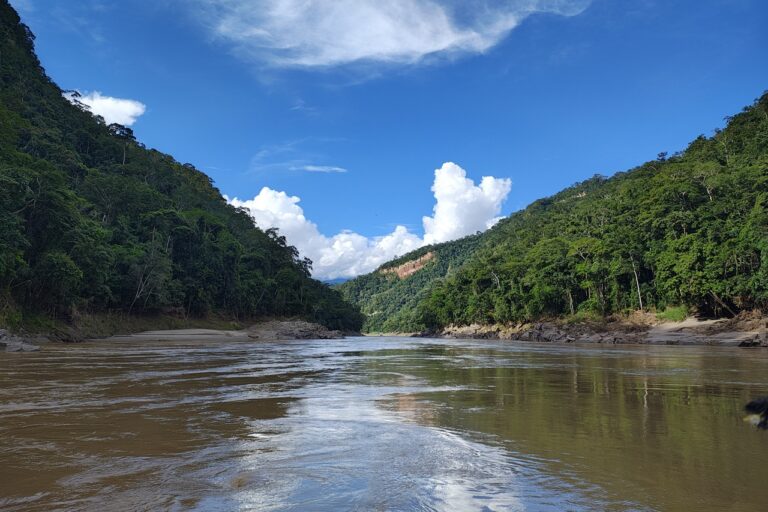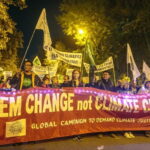Back in 2010, Peru and Brazil signed an energy agreement that included the construction of several hydroelectric power plants in the Peruvian Amazon, which were meant to provide power to neighboring Brazil. One of the projects, the Pakitzapango dam, planned in Peru’s Junín region, drew intense criticism for its environmental implications and was eventually archived in 2011 after opposition from the local Asháninka population. But earlier this year, in February, Congressman Waldemar Cerrón Rojas from the Peru Libre party introduced a bill that would revive the Pakitzapango project and present its construction as a matter of national interest, reigniting communities’ worries over their future. According to the bill (No. 10349/2024-CR) presented to the Ministry of Energy and Mines (MINEM), the project would guarantee the country’s energy security, strengthen its economy through energy commercialization and promote local development. But Asháninka Indigenous leaders and members of the Indigenous organization Central Asháninka del Río Ene (CARE) told Mongabay it would flood their homes, destroy ancestral territories and threaten their cultural existence. “Imagine they entered your house and displaced you,” Yanet Velasco Castillo, from the Asháninka community of Puerto Shampintiari and a member of CARE’s board of directors, told Mongabay over WhatsApp voice messages. “It’s a tremendous injustice. These places are sacred to us.” The bill presented to MINEM states that the hydroelectric dam will affect approximately 10,000 Asháninka people and will flood an area of land about 95 kilometers (59 miles) long. The site is the ancestral home of the Potsoteni, Meteni, Saniveni,…This article was originally published on Mongabay
Search
Recent Research
Want your Blog Article featured on our website?
Research
Featured News
How to Make Your Home More Energy-Efficient in 2026
A practical, future-ready guide for lower bills and a smaller footprint Rising energy prices and
Sustainable Break Rooms: Greening the Office Pantry
Photo by Rodeo Project Management Software on Unsplash A break room may seem like a
Solar-powered AI streetlights to fund coastal highway construction
Nigeria’s long delayed Lagos-Calabar Coastal Highway is set to be rescued by thousands of AI-driven,
Big Data Analytics Enhances Renewable Energy sector
The sun doesn’t send bills, but energy companies using renewable energy do. And to keep
From COP30 to Sri Lanka, indigenous voices shape climate & food sovereignty
COLOMBO — When Indigenous groups converged at the entrance of the U.N. Climate Change Conference
Another threat to reefs: Microplastic chemicals may harm coral reproduction
As the sliver of a new moon shines over Kāneʻohe Bay, Oʻahu, millions of tiny
A Practical Guide to Choosing the Right Organizer Bins Online
Choosing organizer bins sounds simple — until you start comparing sizes, materials, and specs online.
How Lagos traders struggle as styrofoam gradually disappears in markets
Traders have continued to count their losses about five months after the Lagos State Government





